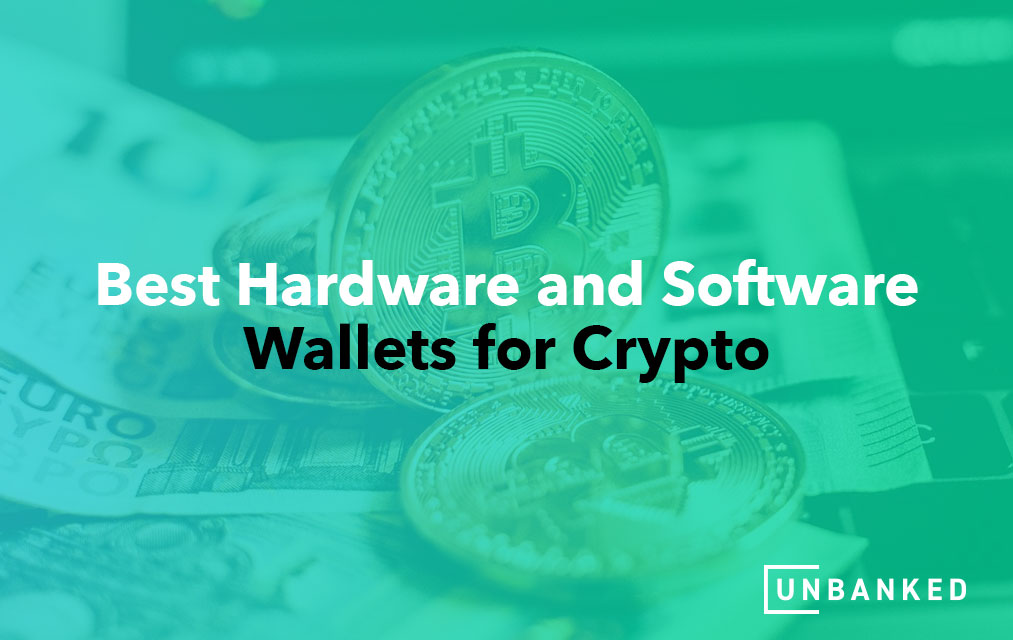If you’re looking to start investing in cryptocurrencies, you have many choices on where to store, send, or receive crypto. What you need is a crypto wallet. These come in many forms like web-based, desktop, mobile, paper, and even hardware. All serve the same function, so it doesn’t matter which one you choose. However, there is a caveat. How you plan to use your cryptocurrency will ultimately let you know which wallet will work better.
Hardware or Software Wallet?
Before you invest in crypto, you need a digital wallet. Both hardware and software wallets store information to grant you access to your crypto on the blockchain. These are your public and private keys. Hardware wallets will be proving more secure as they’re physical items similar to a USB drive. If you plan to invest big but not trade regularly, these are your best bet.
Software wallets are downloadable applications. You can download these onto your mobile or desktop device. They use encryption that will help protect your crypto. They’re also referred to as hot wallets, with hardware wallets being called cold wallets.
Hosted wallets are those that are hosted on a separate server that you aren’t able to control. These make excellent targets for hackers. All your funds are hosted on the server. However, they offer you different protection levels, and you may find some that are third-party insured.
Decentralized wallets mean you hold the keys to your wallet. However, there is no guarantee of anonymity. Keep in mind, with a decentralized wallet, and there’s no third-party for you to rely on when it comes to storing, sending, or receiving your cryptocurrency. It also mitigates some of the security risks that are associated with a hosted wallet.
What to Look for in Your Wallet
Before you decide which wallet is best for you, consider how you may want to use your crypto. You will want a strategy to limit your risk when it comes to your funds being accessed through platforms that aren’t too secure. Choosing different wallets will help mitigate your risk even more.
Pros and Cons of Hardware Wallets
Using your hardware wallets has its advantages. They are hack-proof when you store offline, giving you total control over your cryptocurrencies. They’re more anonymous than using an exchange. However, there are downsides. It can take time to get your cryptocurrency to exchange from your wallet to an exchange, whereas a software wallet is free. Plus, there’s the chance you can lose your hardware wallet.
Best Hardware Digital Wallets
- Trezor One: This wallet features stellar security and uses modern cryptography for all your cryptocurrencies. It has a LED display, a straightforward interface, and a PIN for accessing your wallet. It’ll even prompt you for 2-factor authentication when you make a purchase. It’s compatible with Windows, Linux, and Mac and is connected via a USB.
- Ledger Nano S: If you’re serious about storing your crypto, then this wallet is excellent for your needs. It has a LED display for any payment validation and requires a PIN for confirmation. It’s handheld and completely secure. One of its security features is a 2-factor authentication and has its own operating system, and supports numerous cryptocurrencies.
- Trezor Model T: This wallet cost a little more than the Trezor One but feature more ease of use and additional security measures. The touchscreen interface makes it easy to use but also the only way to use it. Keep in mind that upon connecting the device to your computer, you’ll have one chance to enter a PIN or be locked out for a period of time.
- KeepKey: This device holds more robust security measures than Ledger and Trezor. It’s malware proof that adds to its security, making it almost impossible to infect due to its lack of operating system. However, it can only handle 35 cryptocurrencies, but it has excellent ease of use through a USB port.
Best Software Digital Wallets
- Coinbase: Coinbase is the top of the line with its ease of use and how they see crypto as the future of an open financial world. It’s used to buy, sell, trade, store, use and earn cryptocurrencies. It has its own software for its wallets which adds an additional level of security. If you go with Coinbase Pro, you get more protection and better fees.
- BlockFi: Using BlockFi can earn you 8.6% APY on an account, earning you interest in your crypto. Signing up is easy, and you can earn interest the same day. It doesn’t require a minimum balance, and withdrawals are usually the same day. There are also no hidden fees which make BlockFi an attractive option.
- Gemini: Gemini is a leading crypto exchange for mobile and PC users. You can track market trends and prices in real-time with their easy-to-use and convenient app. If you’re looking to increase your assets in crypto, then Gemini may be best for you. It also features top-of-the-line cybersecurity and numerous custody solutions.
Ultimately, there is no one wallet that is better than another. It depends on what you intend to do with your purchased cryptocurrencies. If security is the most important, then a hardware wallet is best for you. For beginners, Gemini and Coinbase offer an easy and safe way to buy your coins. Plus, going with Coinbase Pro offers fewer fees and more user involvement. Gemini builds products to help you store your cryptocurrencies along with buying and selling them. All the tools are at your disposal. When it comes to crypto, you need a place to store it, and these wallets are excellent options. Choosing the one to fit your needs will help you manage your crypto better and easier, so you stay one step ahead in using your coin to gain further traction in the financial world. All the ones listed are great products and services and will serve you well.





